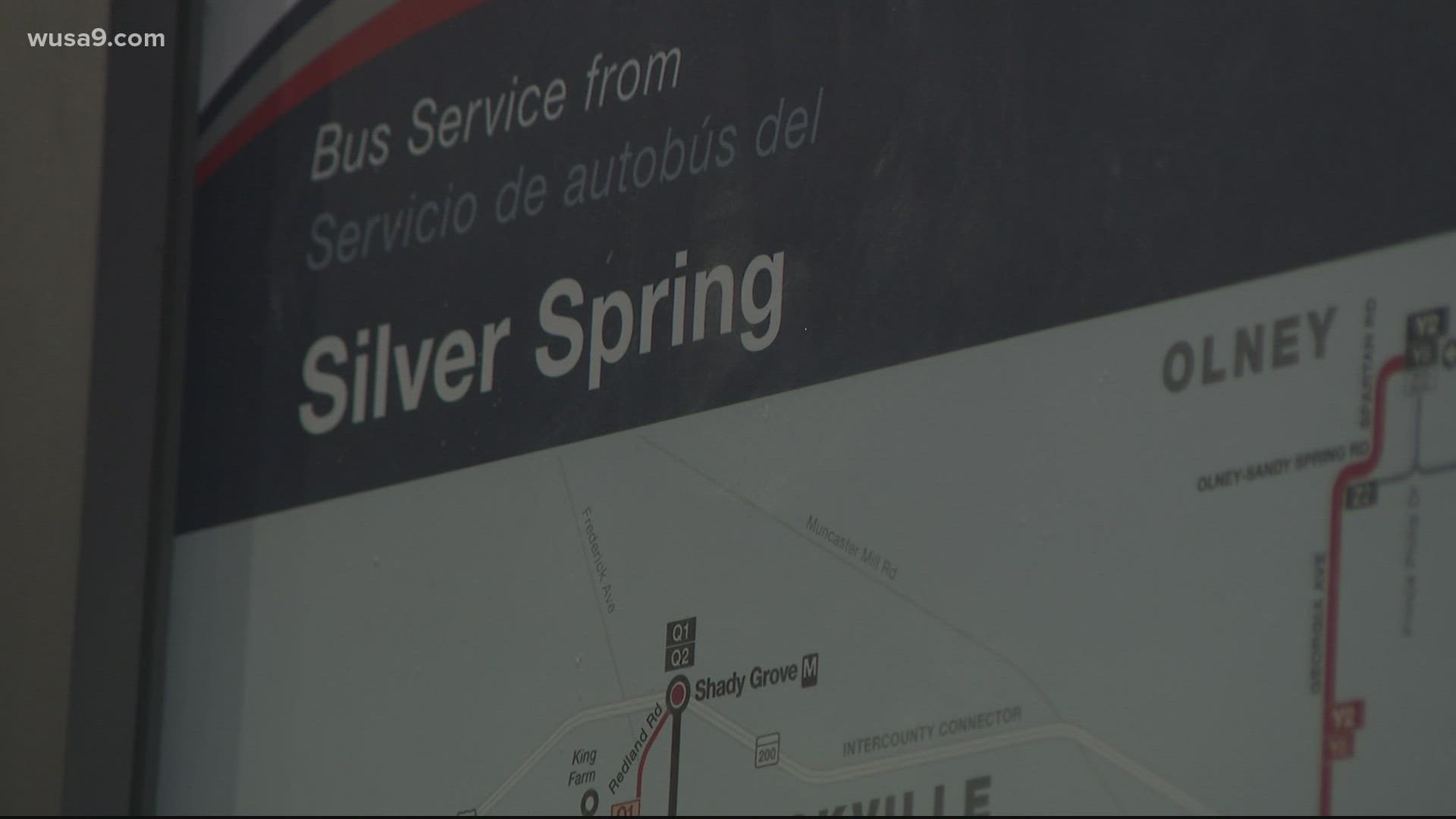WASHINGTON — Metro is the latest transportation agency to make COVID protocol changes as case counts and hospitalization rates continue to increase across the region.
Starting Monday, Jan. 10, WMATA says it will scale back service, particularly on bus routes, and add new protocols for its employees meant to ramp up their protection against COVID. For example, bus drivers are allowed to deny service to riders without a face mask and customer service call center operators will work remotely.
Here is a look at what will change:
- Metrorail: No changes to current service
- Metrobus: Reduce weekday service to a Saturday schedule (about 75% of regular service) while protecting service to essential destinations like hospitals and grocery stores
- MetroAccess: Reduce shared rides and increase accessibility rides.
"Scaling back service will ensure customers who rely on Metrobus, Metrorail and MetroAccess for transportation have a more reliable schedule,” WMATA CEO/GM Paul Wiedefeld said. “Metro employees live in some of the neighborhoods hardest hit by the pandemic and are exposed to the surge in the region and throughout the nation. It’s important that the taskforce take steps to make Metro operationally sound to meet the needs of our customers.”
By Jan. 31, all eligible WMATA employees will be required to enter their booster shot information into Metro’s portal as part of the fully-vaccinated requirement. Unvaccinated employees must continue to pass a COVID test every four days, up from once a week, and starting Jan. 16, employees who don't comply with Metro’s testing and vaccination policies will be placed on unpaid leave, with 30 days to comply or be fired.
"All efforts and precautions are being taken to reduce serious illness and transmission of the omicron variant to vaccinated employees and riders," Metro said in a press release.
As bus service slowly got back to normal on Tuesday following snowy weather the day before, news of the bus route changes brought concerns to some riders at the Paul S. Sarbanes Transit Center in Silver Spring.
"If they’re going to do that they should probably focus on the routes that people depend on, particularly the workers," said Adam Sandman, who told WUSA 9 that he takes the bus several times a week. "I’m lucky. I have a car but many times families don’t have cars."
Sandman found particular concern with buses becoming potentially crowded during a pandemic as a result of the reduced service.
"Some of the routes aren’t too busy. Other times, it’s quite busy. They should prioritize it so you’re not having too much crowding," he said.
WMATA had already suspended 42 bus lines starting Dec. 26, partly due to a surge in bus driver infections.
"I work and if buses aren't running, I can’t get there," said another bus rider on Tuesday. "I’m in trouble. I can’t afford Uber or anything like that.”
While an exact timetable for how long the service change will be in place remains unknown, Sandman hoped regular service would return soon.
"If it’s temporary, I think it’s fine. People will adjust. People can deal with it," he said. "If it’s long, I think it will have a severe impact.”

